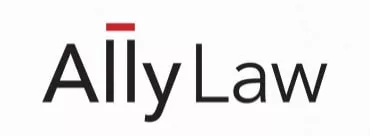On 7 December 2021, the Council of the European Union reached a political agreement supporting the adoption of a directive designed to modernize and harmonize rules for the application of reduced value-added tax (VAT) rates.
The amendment to the VAT Directive aims to support a broad range of climate-change and environmental goals outlined in the European Green Deal. Specifically - and if adopted by Member States - the amendment will abolish preferential treatment of environmentally harmful supplies (such as chemical fertilizers and pesticides) as well as reduced VAT rates or exemptions on fossil fuels and other goods with a similar impact on greenhouse gas emissions.
On the other hand, the proposal gives Member States the option of contributing to a climate-neutral and green economy by reducing VAT rates on environmentally friendly supplies. The amendment is also designed to address possible future challenges (such as pandemics, humanitarian crises or natural disasters) and enable Member States to respond quickly when such exceptional events arise.
Currently, Member States are:
- Required to apply a standard rate of no less than 15% for all goods and services (no maximum rate is set).
- May apply a reduced rate of no less than 5% to goods or services listed in Annex III of the VAT Directive.
- May apply a special rate below 5% as derogation (for historical reasons and under certain conditions).
Under the amended directive, all Member States would be entitled to apply additional rates below 5% or equal to zero (with right of deduction) to some of the categories of goods and services listed in Annex III in line with the environmental and crisis-response goals of the amendment. Such goods and services include those considered to cover basic needs, as well as solar panels, medicines, pharmaceutical products, and health and hygiene products.
The amendment also indicates that Member States should limit the application of the various reduced rates to a maximum of:
- Twenty-four of the categories referred to in Annex III in the case of reduced rates of more than 5%.
- Seven of the categories eligible for a rate of less than 5% (Member States that currently apply derogating rates to more than seven categories will have until 1st January 2032 to be compliant).
By March 2022, the updated rules will be sent to the European Parliament for its consultation on the final text. Once formally adopted by Member States, the legislation will come into force 20 days after its publication in the Official Journal of the European Union. Member States will have until 2030 to have their legislation and until 2032 to have their applicable rates aligned with the new rules.
Click here to read the original article published by Ally Law member firm KCG Partners.
The content of this article is intended to provide a general guide to the subject matter. Specialist advice should be sought about your specific circumstances.
We operate a free-to-view policy, asking only that you register in order to read all of our content. Please login or register to view the rest of this article.


